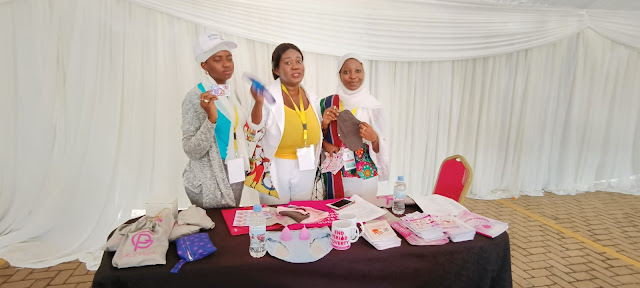The progress in closing the digital divide is slowing down in Africa. By Sofonie Dala, Angola
Leaving No One Behind in a Digital World
Africa has the lowest implementation of appropriate capacity development aspects with only 25% of citizens having access to basic ICT skills.”
Africa's Mobile Gender Gap: Millions of African women still offline.
Ma'am good afternoon!
Good afternoon!
What's your name?
My name is Luisa!
How old are you?
I am 36 years old.
Why are you using this old model phone?
I'm using this phone, because life is very difficult, I can't buy a digital phone that I would like to have, due to lack of financial resources I only managed to get an old phone like this one.
Have you ever used a digital phone?
I've never used it.
Why?
I don't have the economic empowerment that would allow me to buy a digital phone.
Don't you have someone who can offer you a smartphone?
I don't have. I ask for help to acquire a digital phone.
Would you like to use one?
Yes, I would love to use it.
Do you have a computer?
I don't and have never owned a computer.
And how do you see yourself living in a world so developed in n technology, without a computer and a digital telephone? Don't you feel a little limited?
I feel very limited, I sometimes feel the need to find out about the things that happen around the world but I can't because of the lack of a digital phone and a computer.
OK thank you.
It is worrying to see thousands of Angolans behind the digital world contributing to climate change due to lack of knowledge and access to communication and information technologies. Incomes in Africa are low and the price of mobile prices are generally quite high, if people express that in a ratio, the difference becomes even bigger.
In Africa many regions are difficult to access — it is particularly expensive to set up infrastructure there." The costs are a challenge for most Africans, prices here are thus much higher than in other parts of the world, and especially compared to industrialized countries, mobile internet is many times more expensive than would be appropriate in view of the country's economic power.
What is the digital divide?
The digital divide refers to the gap between those able to benefit from the digital age and those who are not.
There are various types of digital exclusion that exists, we have outlined some below to help you understand the spectrum of where an individual or community may sit within it:
● Internet access refers to those who are able to access the internet by whatever means (including via a smartphone or through a connection in their homes).
● Internet non-users refers to those who have never used the internet or last used it more than 3 months ago.
● Digital skills refer to those skills that are needed to safely and competently use the internet.
There are many reasons why digital exclusion exists reflecting socio-economic inequalities. Some variables being but not limited to:
● Income inequality
● Rural and remote access
● Gender discrimination
● Education
● Housing
● Age
Young people hold the key to transforming our digital future where everyone can thrive in a sustainable world with equal access to an open, free, secure & inclusive internet.Today, ICT is necessary for our healthcare, education, economic growth and development, and day-to-day activities."
In light of the world population reaching eight billion, it is critical to redouble efforts to bridge the gap between those who have access to connection and those who do not.
Many African women can still only dream of owning a smartphone and having access to the internet. Men, however, have long been able to surf the web. This inequality has significant political and economic consequences.



.jpg)

Comments
Post a Comment